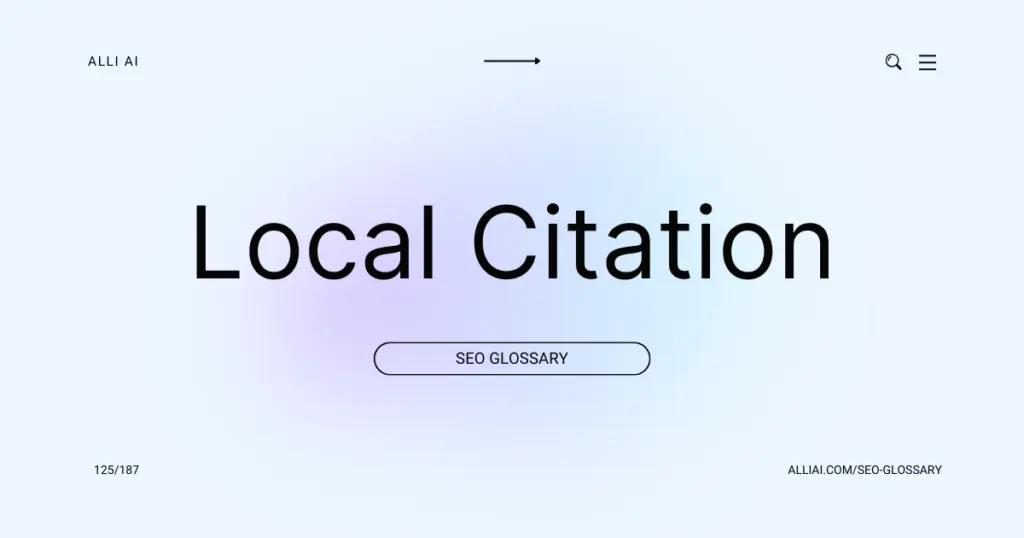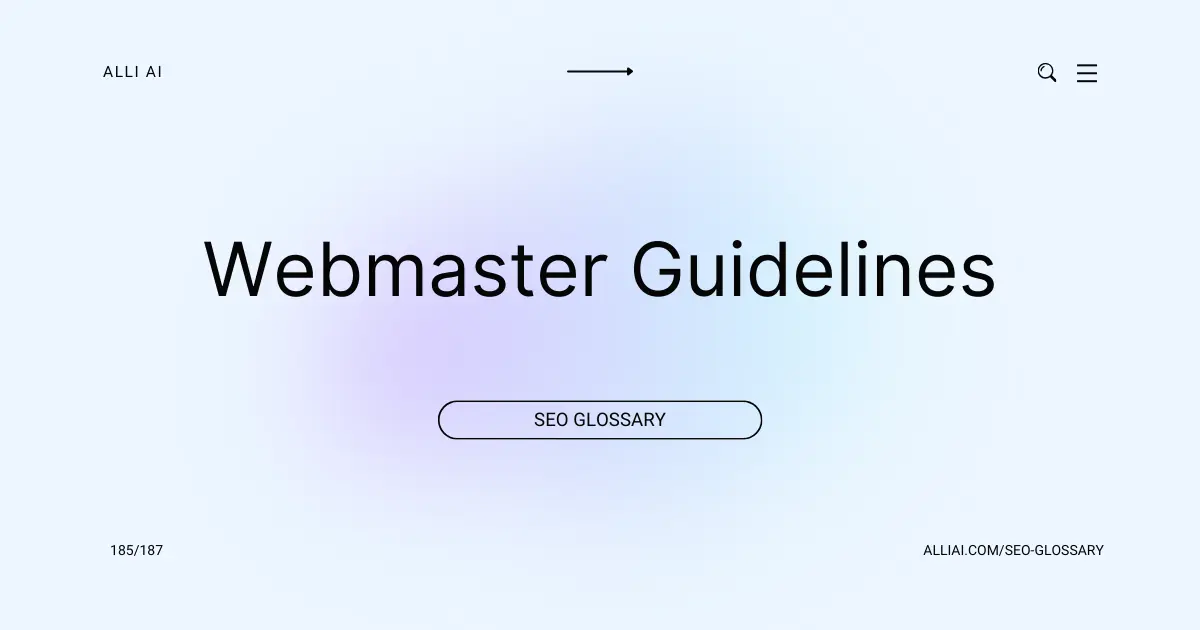What Does Local Citation Mean?
A local citation is a mention of a local business on the internet that typically includes the business’s name, address, and phone number, commonly referred to as NAP. These citations can appear on local business directories, websites, apps, or social platforms and are crucial for improving search engine rankings in local search results.
Where Does Local Citation Fit Into The Broader SEO Landscape?
Local citations play a crucial role in the broader SEO landscape by impacting local search engine rankings. Citations are mentions of a business’s name, address, and phone number on various websites, directories, and social platforms. These references help search engines verify the authenticity and relevance of a business to specific geographic locales. By enhancing the trustworthiness and consistency of business information across the internet, local citations indirectly improve a website’s visibility in local search results. This is particularly influential in local SEO, where the goal is to stand out in searches within a defined geographical area.
Real Life Analogies or Metaphors to Explain Local Citation
Local citations are like the business cards of the internet world. Just as you might hand out your business card at a network event to spread the word about who you are and what you do, each local citation serves as a digital shoutout across various platforms, telling the internet where you are and what services you offer. This helps to reinforce your presence both in the eyes of potential customers and search engines alike.
How the Local Citation Functions or is Implemented?
1. Identification of Business Information: Local citations predominantly include the name, address, and phone number (NAP) of a business. Accurate and consistent use of this information across all platforms is crucial.
2. Choice of Platforms: Businesses select relevant platforms for citations, which can include directories like Yelp, Google My Business, Facebook, local business directories, industry-specific directories, and more.
3. Creation of Listings: Businesses create profiles or listings on these chosen platforms, ensuring that the NAP information is accurate and consistent. Additional information such as business hours, descriptions, images, and links to the business website can also be included.
4. Verification Process: Platforms often require verification to confirm the authenticity of the business. This can be done through phone verification, email, or physical mail with a verification code.
5. Management and Updates: Businesses need to maintain and update their listings regularly to ensure accuracy. Changes like moves, changes in phone numbers, or hours of operation need to be updated to keep the citation effective.
6. Review and Rating Encouragement: Encouraging customers to leave positive reviews on these listings can enhance the business’s visibility and attractiveness.
7. Monitoring Impact: Businesses track the performance of their local citations through various metrics like search ranking improvements, increased website traffic, or direct contacts/enquiries from potential customers. Tools like Google Analytics can be used to measure the impact.
8. Consistency Check: Regular audits are conducted to ensure there are no discrepancies in how the business information is presented across different citation sites. This prevents confusion and ensures better SEO performance.
9. Integration with SEO Strategy: Local citations are integrated with broader SEO and marketing strategies to improve local search visibility and attract a local customer base.
Impact Local Citation has on SEO
Local citations, which include mentions of a website’s name, address, and phone number (NAP) on external webpages, directly enhance SEO performance by boosting local search engine rankings. Search engines like Google use these citations as one of the key indicators to verify the geographic location and authenticity of a business. A higher number of consistent and accurate citations improves a business’s visibility in local search results, drawing more targeted traffic to the website and thereby enhancing the user experience by connecting users more efficiently with relevant local businesses. Discrepancies in citation information can negatively impact rankings, as they undermine the search engine’s trust in the accuracy of the business data.
SEO Best Practices For Local Citation
1. Identify your business’s NAP (Name, Address, Phone Number) information; ensure it is consistent across all platforms.
2. Submit your business information to reputable local directories relevant to your location and industry.
3. Optimize the business descriptions for each citation, ensuring to include relevant local keywords and geographical terms.
4. Add high-quality images, business hours, and other relevant detail to your listings to enhance visibility and engagement.
5. Include links to your business website, and ensure the URL is tracked for analytics if possible.
6. Regularly check your listings for accuracy, ensuring there are no discrepancies or outdated information.
7. Encourage satisfied customers to leave positive reviews on these local citation sites.
8. Monitor the performance of each citation source and adjust your strategy if specific platforms underperform.
9. Utilize tools like Google My Business, Bing Places for Business, and other local SEO tools to manage and optimize citations efficiently.
10. Build additional local links by participating in community events, local charities, or collaborations with other local businesses to enhance your local SEO footprint further.
Common Mistakes To Avoid
1. Inconsistent NAP Information: Ensure that your business name, address, and phone number (NAP) are consistent across all platforms. Mismatched or outdated information can confuse search engines and potential customers.
2. Ignoring Niche or Local Directories: Besides major directories like Google My Business or Yelp, list your business in niche or locally-focused directories to capture a targeted audience.
3. Neglecting Reviews and Responses: Active engagement with reviews on citation sites improves your reputation and affects local SEO rankings. Respond professionally to both positive and negative reviews.
4. Overlooking Citation Data Quality: Submitting your business to low-quality or spammy directories can harm your SEO. Choose reputable platforms for your local citations.
5. Duplicate Listings: Avoid creating multiple listings for the same location on the same directory as this can confuse search engines and dilute your SEO efforts.
6. Failure to Monitor Listings: Regularly check your listings to update any changes and correct errors. Unmonitored listings can become outdated, leading to missed business opportunities and lowered SEO ranking.
7. Not Utilizing Local Keywords: Incorporate relevant local keywords in your business descriptions on citation sites to improve your visibility in local search queries.
8. Ignoring Category Listings: Accurately categorize your business in all directories to ensure it shows up in specific and relevant searches.
9. Inadequate Location-Specific Pages: For businesses with multiple locations, create distinct pages for each location with specific local information to strengthen local SEO.
10. Skipping Analytics: Utilize analytics to track the performance of your citations and understand how they contribute to your traffic and SEO. This informs better decisions and optimization strategies.






